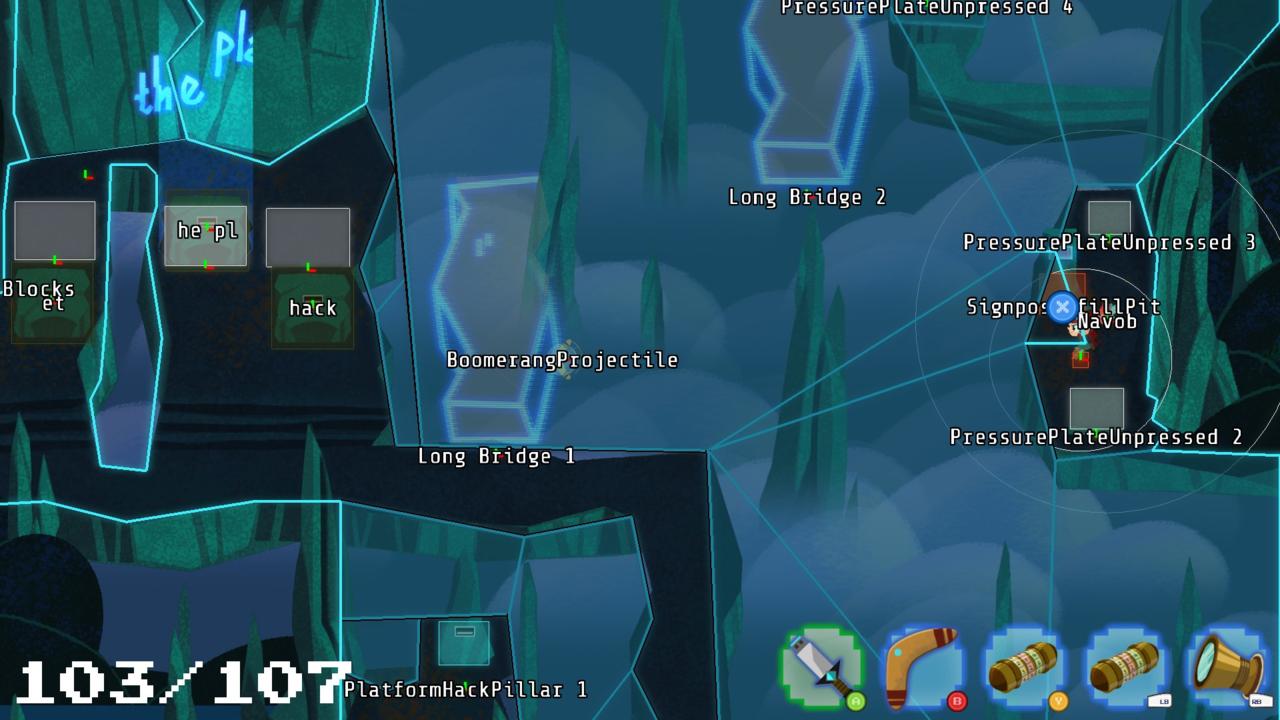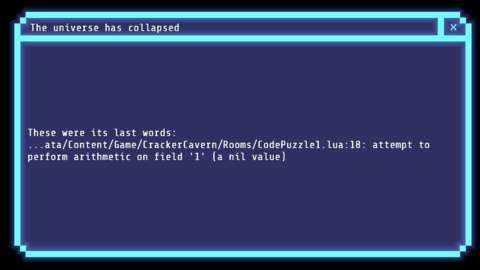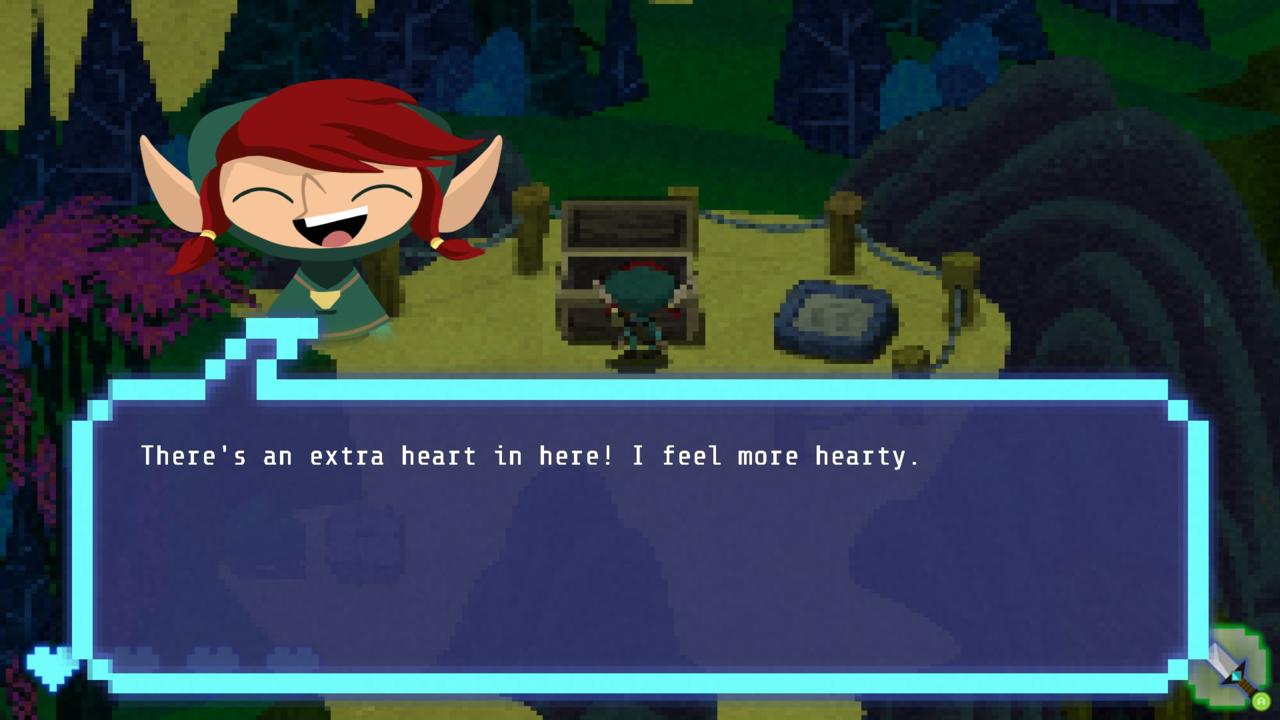Hack 'n' Slash Early Access Review
PlaySound ("C:\\sounds\\HEYLISTEN.wav", NULL, SND_LOOP);
GameSpot's early access reviews evaluate unfinished games that are nonetheless available for purchase by the public. While the games in question are not considered finished by their creators, you may still devote money, time, and bandwidth for the privilege of playing them before they are complete. The review below critiques a work in progress, and represents a snapshot of the game at the time of the review's publication.
There is no graceful way to close Hack 'n' Slash. No exit option in the menu. No menu, at that. The only way to turn the game off is to alt + tab away from it and force-close it from outside the program. As an early access game with emphasis on the "early," Double Fine's yet-unfinished puzzle game is up to its neck in idiosyncrasies of that sort. They're nostalgic problems for a nostalgic game--a send-up of The Legend of Zelda, harking back to a time when troubleshooting started and ended with blowing on the cartridge to clear away the dust.
You're dropped into a cavernous dungeon, possessionless except for an unusual sword. Hack 'n' Slash starts with a premise common enough to the Zelda series, but it takes a hard left when you try to swing your sword against the bars of your prison door and it breaks to reveal an underlying USB drive. Try that swing a second time, and now you're greeted with a prompt: GateDoor: Open (False). Change the value of the Boolean, and the door opens, no questions asked.

So, here's a world where elaborate Tolkienesque fantasy terms are rendered in the scrunched shorthand of computer code, all superfluous underscores and appended numerals. A world where the classic iconography of action adventure games can be opened up, their entrails of code sifted and rearranged toward more immediately useful applications. Where in The Legend of Zelda, you might mow through foliage with your sword to reveal a few hidden items, in Hack 'n' Slash, it's but a matter of programming the bush to spontaneously combust and leave behind a desired reward.
Over time, more elegant and clever uses reveal themselves to enterprising minds. Take, say, the obnoxiously aggressive birds that pursue you, pecking away, and change their damage value to something negative. Suddenly you've got a cranky little satellite that heals you at regular intervals. The scope of your hacking ability is usually limited to a few baked-in applications, but even those prescriptive limits can be stretched to a breaking point. After one early character confers a gift of additional health, you might decide to rig the gamestate to say the gift was never received, and treat yourself to a second helping. And a third, and a fourth...on and on until you become functionally immortal.
Here's a world where elaborate Tolkienesque fantasy terms are rendered in the scrunched shorthand of computer code, all superfluous underscores and appended numerals.
That might seem to spoil some of the challenge, but the double entendre of "Hack 'n' Slash" trades more on its second meaning than its first. In this land, the keyboard is mightier than the sword: battles here aren't won with combat prowess, but on the strength of your ability to see through to the code, to bend it to your will. Algorithms are arcana in Hack 'n' Slash, and those who wield them are wizards. Speaking as someone who views programming skill with the intermingled mistrust and awe normally reserved for the dark arts, it's not all that much of a stretch.
The trouble is that Hack 'n' Slash soon loses its patience for us muggles. Flipping the switch on an enemy to change its attitude from "angsty" to "docile" is one thing, but when the game starts to really amp up the hacking in Act 4, it sheds its innocent fantasy charm and becomes something stark and standoffish. Instead of leafy woods, you're back in dank caves that look suspiciously like the ones you started in. Instead of clever amalgams of programming and puzzles, you get doors to unlock and programming pictographs. Imagine having to read a long strand of computer code by physically running from one side to the other, learning each function by staring at it until the values make sense.
"Here's a fun fact about the modulo operator," says your fairy companion as you amble back and forth, fiddling with dials. "You can easily test whether a number is even or odd by computing the number modulo 2!" But no amount of edutainment dialogue can help you to parse coding language when it's laid on so thick. And even though the most byzantine of these puzzles belie a relatively simple solution--usually just a change to one or two of the variables--it's small comfort to a layman. They might as well be written in elvish. Sometimes they are.

It's one thing to grapple with the challenges the game poses on purpose. It's quite another to juggle them alongside Hack 'n' Slash's temperamental stability. Set a variable to equal another variable, and the game crashes. Change a letter variable to a number, and the game crashes. Touch a particular object, and the game crashes. Switch between keyboard and controller while entering a variable, and the game crashes.
In one moment that quite unintentionally recalled 2013's The Legend of Zelda: A Link Between Worlds, I went through a door at a slightly off-kilter angle and found myself adhered to the wall. I scampered around off the critical path, weaving among the wall sconces and pilasters, and soon found I was still able to move between rooms. As I merrily sidestepped puzzles and obstacles meant to impede my progress, I pondered the various ways that Hack 'n' Slash adroitly lampshades its own glitchiness. You are explicitly instructed to poke at the weak points in the game's code, so wouldn't a few unscripted solutions be in keeping with that spirit? But soon the wall ended, and I was unable to extricate myself.
Worse still, the puzzles I'd bypassed unlocked tools I'd need later, so I had no choice but to quit the game and load an earlier save. There's no fast-travel option in Hack 'n' Slash, so errors of both human and computer origin alike can cost you a great deal of time and patience.
It will likely fall to Double Fine's trademarked sense of humor to shepherd you past the jargon and the instability, to make this simple story about an unsung hero toppling an evil wizard pop and fizz. It certainly has the pedigree for the job. And even in this unfinished state, Hack 'n' Slash does feel like a good venue for the developer's brand of punny, irreverent humor. It's got all the ingredients of a quintessentially postmodern game: classical video game references, subversive deconstruction, and vibrant, cartoonish color.

There is one area where Hack 'n' Slash might have been better served with a little modernist order, though. In the original Legend of Zelda games, an underlying grid governed the placement of objects like doors, trees, and chickens. Hack 'n' Slash carries itself as though it works in a similar fashion. Reprogram an enemy, for example, and you find a prompt for how many "tiles" you'd like it to move. But the grid is otherwise inscrutable, and movement suffers for it. Movable puzzles become exercises of trial and error. Diagonal motion on your part is often necessary, but frequently punished, and the location of characters seems to have little to do with where they take or give damage. Clipping issues abound. With a more modular, Cartesian appearance, the mathematical undercurrents running beneath Hack 'n' Slash could be better handled when they bubble to the game's surface.
But now I'm advocating for more math, and that's troubling territory for an artsy-fartsy critic. Perhaps with a little more development time, Hack 'n' Slash can make those STEM fields palatable for a mind full of fairies and magic swords like mine. But right now, it needs someone to blow the dust off its cartridge.
What's There? | A clever but glitchy and incomplete adventure wherein you reprogram your way across four acts of exponentially increasing difficulty. It takes a couple of hours to complete, give or take some time based on your ability to suss out meaning from code. |
What's To Come? | A fifth and final act to resolve the story, as well as additional puzzles, modding support, and adjustments and fixes based on player feedback. |
What Does it Cost? | $19.99 on Steam. |
When Will it Be Finished? | Unknown. |
What's the Verdict? | Hack 'n' Slash's endgame is ambitious--a fantasy world without a fourth wall, open to the caprice of anyone who can string together a few lines of code. But frustrating glitches, inscrutable puzzles, and jury-rigged art make for an inauspicious start to its hero's journey. |
Got a news tip or want to contact us directly? Email news@gamespot.com
Join the conversation